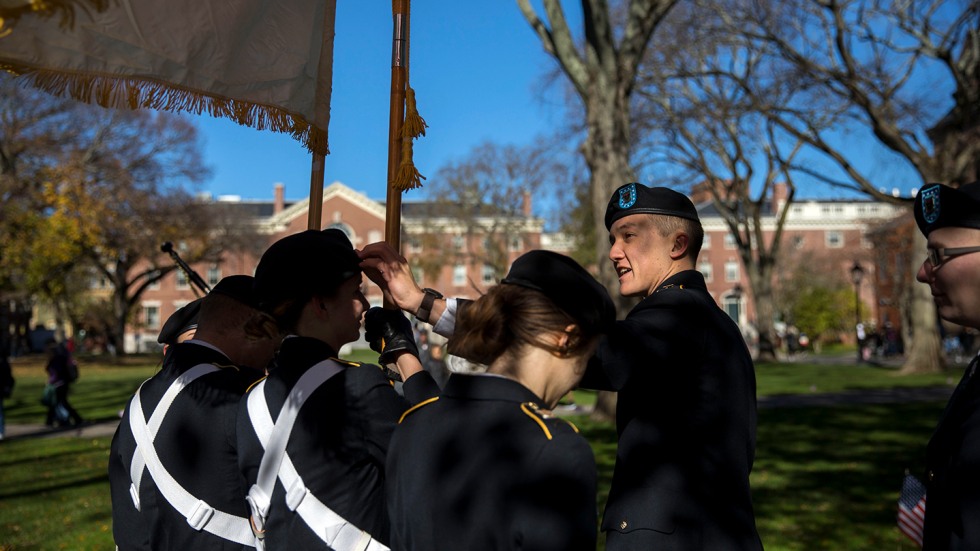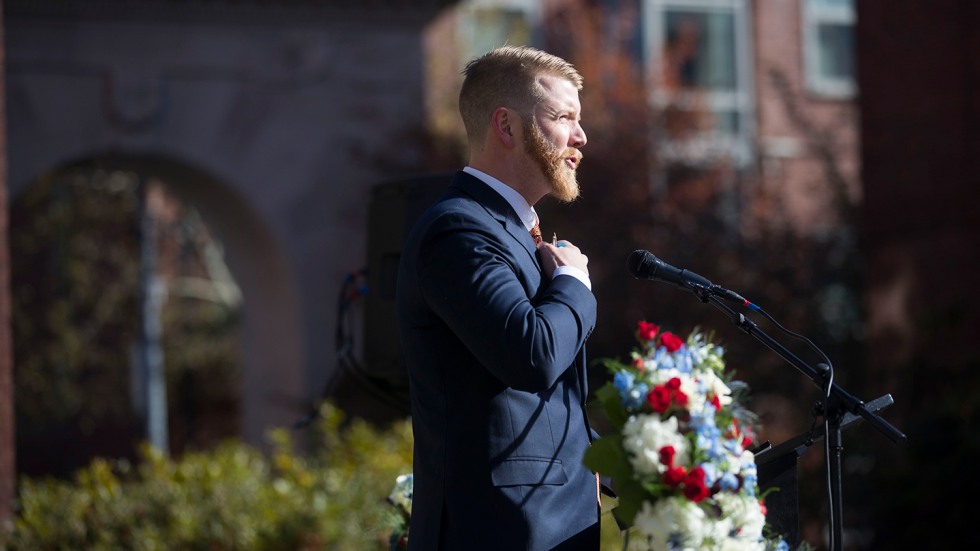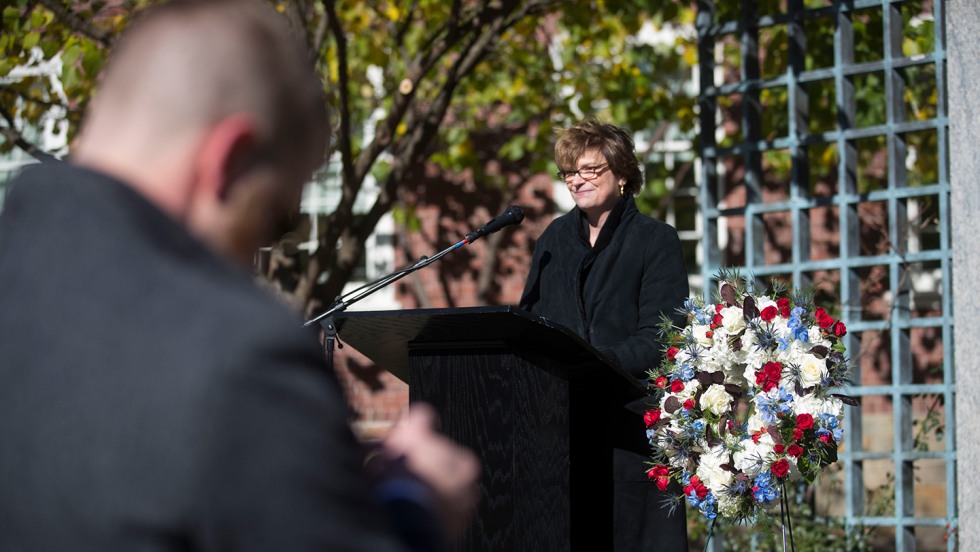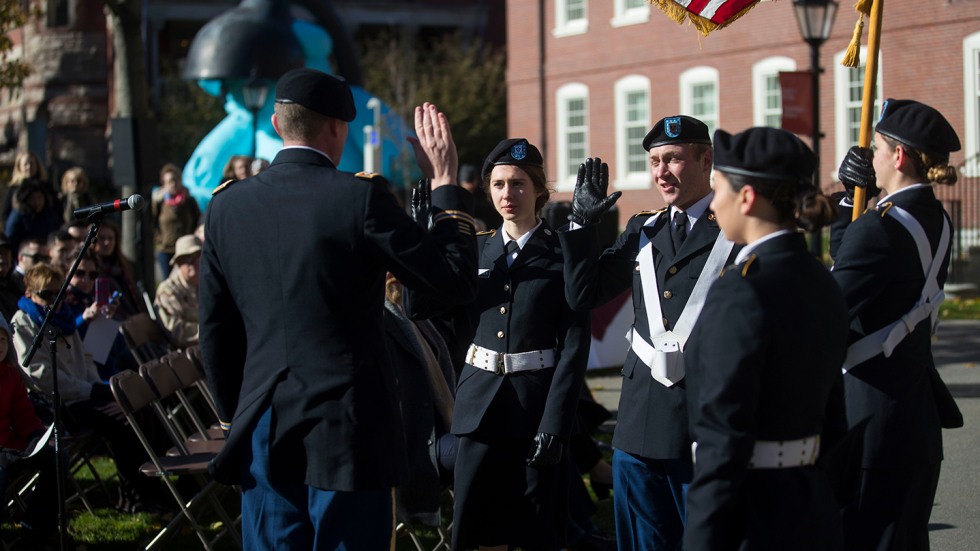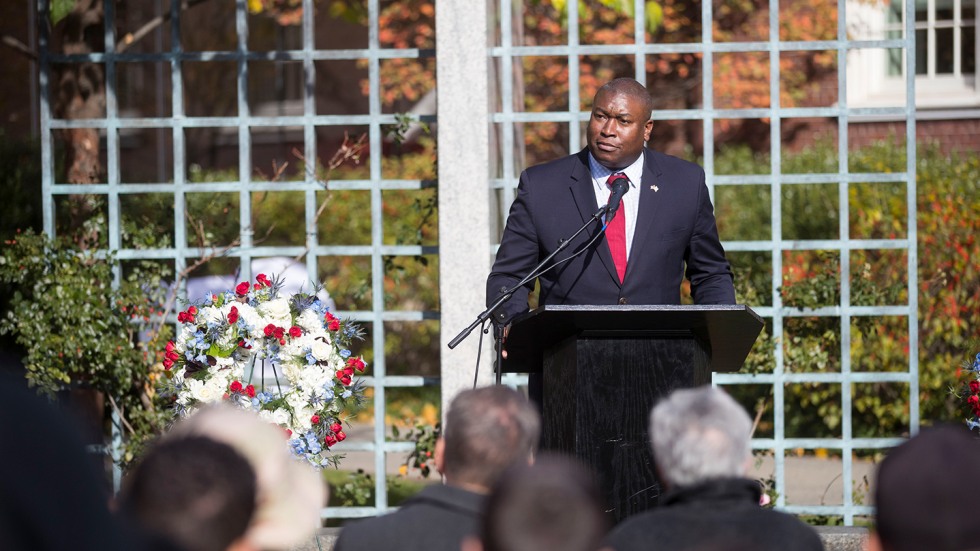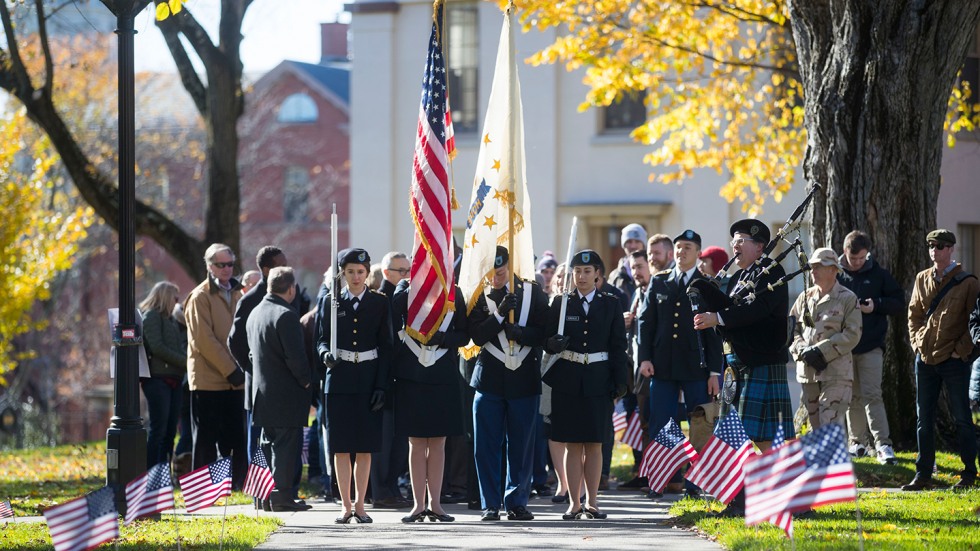PROVIDENCE, R.I. [Brown University] — Under sunny skies but near-freezing temperatures, members of the Brown community convened near Soldiers Memorial Arch on Friday, Nov. 10, to honor the service of past and present members of the U.S. Armed Forces.
After the two newest members of the Patriot Battalion Army ROTC formally took oaths to serve in the U.S. Army following graduation from Brown, a series of speakers cited progress made in boosting the ranks of veterans at colleges and universities but emphasized the challenges that face veterans who return home after service.
Class of 2018 member Tristan Hood — an Air Force veteran who before coming to Brown participated in a humanitarian mission to help Haiti and served two tours in Baghdad — lamented what he called a growing civilian/military divide. Too often, he said, the public discourse zeroes in on rare cases of military negligence, and veterans often end up erroneously perceived as responsible for the aggregate actions of the military. He implored his fellow veterans to take the lead in decreasing that divide.
“While the civilian will never be a solider, the war fighter can return to being a civilian…” Hood said. “There is no use in waiting for others to have an epiphany of understanding. Instead, it is up to us, the brave few who can return to the civilian world, to advocate for our brothers and sisters… to embody the warrior scholar… to inform our colleagues, through intellectual conversation, about the trials and tribulations of service. We will have to do the lion’s share of work if we want to see the gap diminish.”
As the ranks of student veterans enrolled at Brown continue to grow, University President Christina Paxson noted the distinctive and positive impact these students have on campus and said a support network for veterans will always be found on College Hill.
“Student veterans have unparalleled experiences to share and a unique lens on the world,” Paxson said. “Their perspectives add a critical dimension to our understanding of history, war and conflict. An open exchange among veterans, students, scholars and citizens serves not only to advance knowledge, but to enrich the greater good.”
